Nano Conference
Past Gallery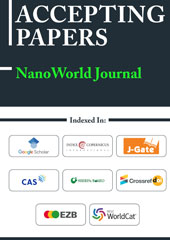


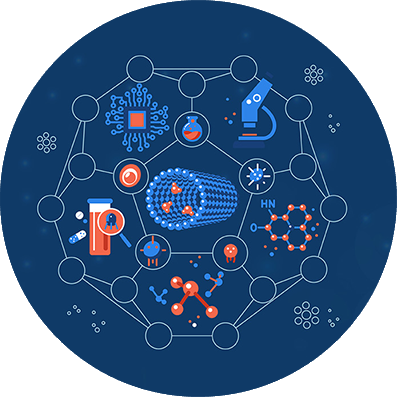

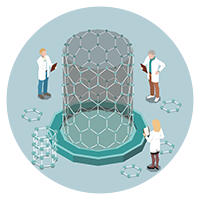
Nanomaterial research is advancing rapidly, with major progress in organic, inorganic, and hybrid systems. Innovations in nanopolymers, CNTs, nanocomposites, and nanoporous materials are enabling next-generation functional applications. With advanced tools like TEM, SEM, and XPS, coupled with AI-driven modeling and computational nanoscience, nanomaterials development is becoming more precise, efficient, and application-driven — powering smarter design and high-performance technologies.
Submit Abstract
This track showcases advances in nanomedicine, diagnostics, targeted drug delivery, cancer nanotechnology, DNA nanotech, nanorobots, nanosensors, biomaterials, lipid nanotech, tissue engineering, and nanotoxicology — with strong focus on safety, translational research, and nano-enabled innovations shaping future healthcare, food systems, and the global bioeconomy. It brings together leading researchers, clinicians, and innovators to highlight breakthroughs that are redefining modern medicine and accelerating patient-focused solutions.
Submit Abstract
The Electronics & Photonics track explores how nanoscale engineering is redefining future electronic and optical technologies. This session highlights breakthroughs in semiconductor and hybrid nanostructures, nanoparticles, nanowires, and quantum materials that are pushing device performance to unprecedented levels. With advances in metamaterials, plasmonics, nanosensors, nano-actuators, and next-gen fabrication techniques, researchers are building smaller, faster, and more energy-efficient systems.
Submit Abstract
The Energy & Environment track highlights nanotechnology for clean energy and sustainability, including nano-enabled energy harvesting, advanced solar systems, and next-gen batteries and supercapacitors. With focus on graphene, CNTs, molecular nanotech, pollution control, water purification, and sustainable manufacturing, this track showcases innovations driving a cleaner, smarter future. From solar paints to smart nanocoatings and environmental remediation tools, this session showcases how nanoscience is powering next-generation clean energy and environmental protection technologies.
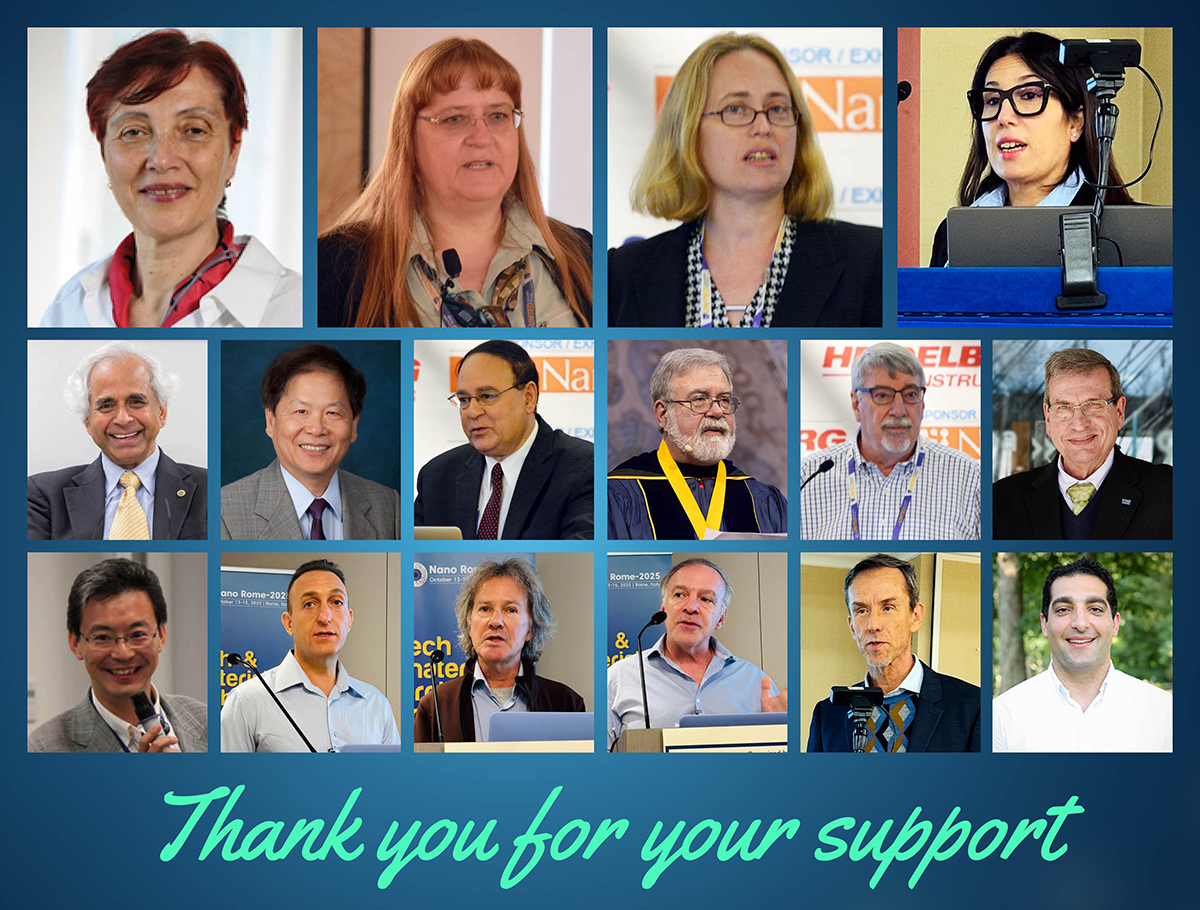
Nano-2026 is a premier international conference dedicated to exploring the frontiers of Nanoscience and Nanotechnology, bringing together global leaders, researchers, and innovators to share insights, discoveries, and transformative applications at the nanoscale. The event will serve as a vibrant platform for exchanging pioneering ideas, fostering collaborations, and inspiring breakthroughs that shape the future of science, technology, and industry.
At Nano-2026, participants will delve into the most recent advances in nanomaterials, nanoelectronics, nanomedicine, and nanoscale manufacturing.
Academic
Industry
Student
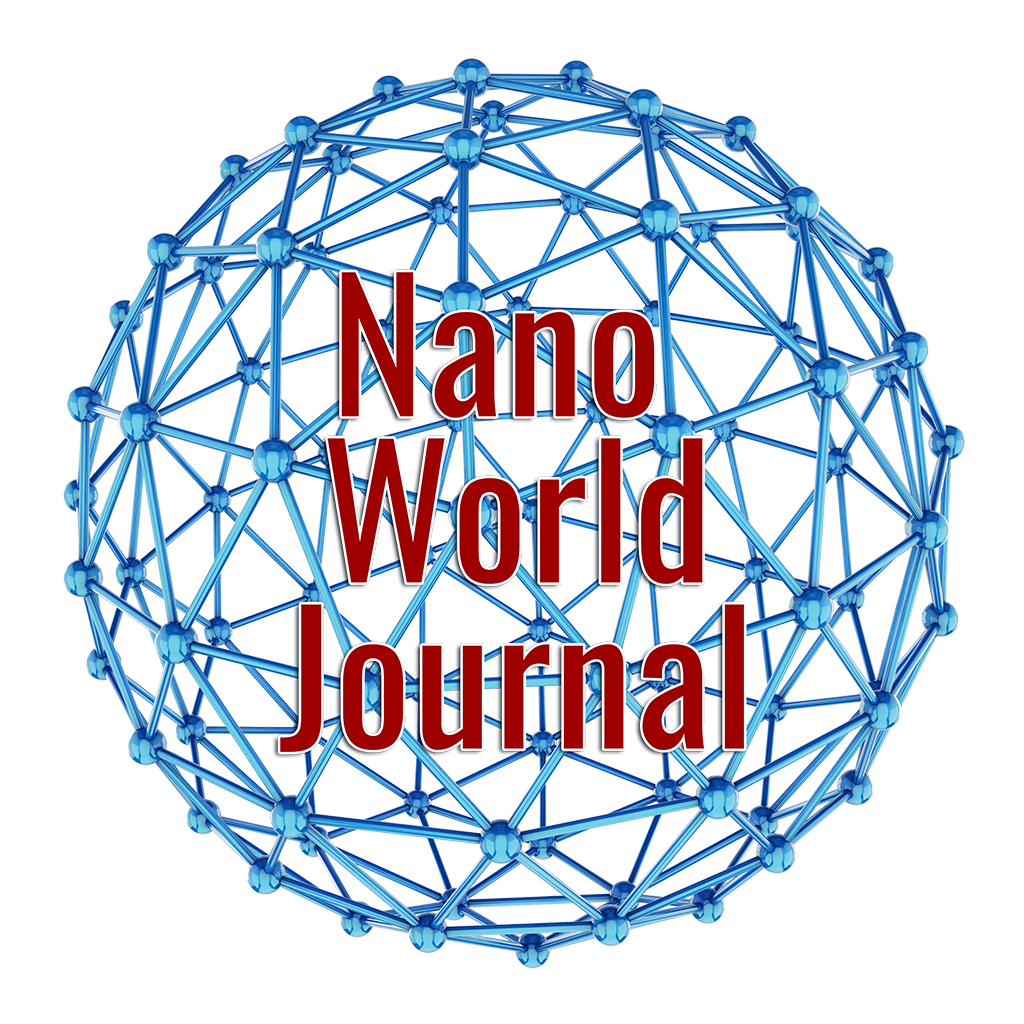
NanoWorld Journal (NWJ) is a premier peer-reviewed, open-access journal dedicated to advancing global innovation in Nanotechnology and Nanoscience. Published quarterly, NWJ features high-impact research across energy, environment, healthcare, space, materials science, and advanced hardware, fostering worldwide collaboration in Research and Development. The journal welcomes submissions in emerging fields such as nanomaterials, nanomedicine, nanoelectronics, and quantum technologies, driving sustainable solutions for the future. Indexed in leading databases including CAS, Google Scholar, J-Gate, Index Copernicus, and others, NWJ ensures maximum visibility and credibility for your research—empowering discoveries that shape the world at the nanoscale.
All accepted abstracts from registered participants will be published in the NanoWorld Journal (NWJ) as part of the conference proceedings.